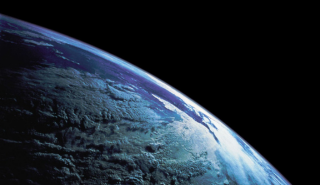University Of Reading Research Focuses On Extreme Weather In Net-Zero World
Working out what a net-zero world will look like is the goal of new research at the University of Reading.
The Natural Environment Research Council has awarded £580,000 to Andrea Dittus, senior research scientist at the University’s Department of Meteorology and National Centre for Atmospheric Science, to carry out the research.
Studying net zero climates is a relatively recent focus of research that comes off the back of commitments world leaders made to limit global warming to below 2°C – and 1.5 °C if possible – following the 2015 Paris Agreement. This ambition can only be achieved by reducing global emissions of greenhouse gases (GHG) to net zero. The new research will explore how the climate could change in a future where greenhouse gas emissions have been reduced to net zero, and global temperatures have stabilised compared to the current rapid warming trends.
Andrea said: “We have all seen the record temperatures and wildfires dominate Europe in the past few weeks. Climate change is playing a major part in this. We need to better understand how climate and climate extremes would evolve in a world where temperatures have stabilised at the global scale.
“There is growing evidence that the climate’s behaviour could vary significantly between a rapidly warming world and a stabilising one, even if they have similar temperature levels.
“By analysing these changes, we can learn how our climate may evolve in a more sustainable future.”
Volcanic eruptions
The study is one of a dozen Independent Research Fellowships funded by NERC that will allow the most promising early-career scientists to carry out their ‘cutting-edge’ research projects. The scheme is designed to develop scientific leadership among the Fellowship recipients, who will receive five years of support as a result of the award.
Andrea’s project will involve using climate model simulations to develop scenarios highlighting the climate impacts different regions might experience in a net-zero world.
One scenario Andrea will look at is the possibility that a series of volcanic eruptions will occur in a stabilising global climate. Large successive eruptions occurred in the 19th century and could occur again – but this possibility is not something routinely included in climate projections. Multiple successive large volcanic eruptions could have important effects on temperature and rainfall patterns across the globe.
Andrea will commence her research in January 2024.

